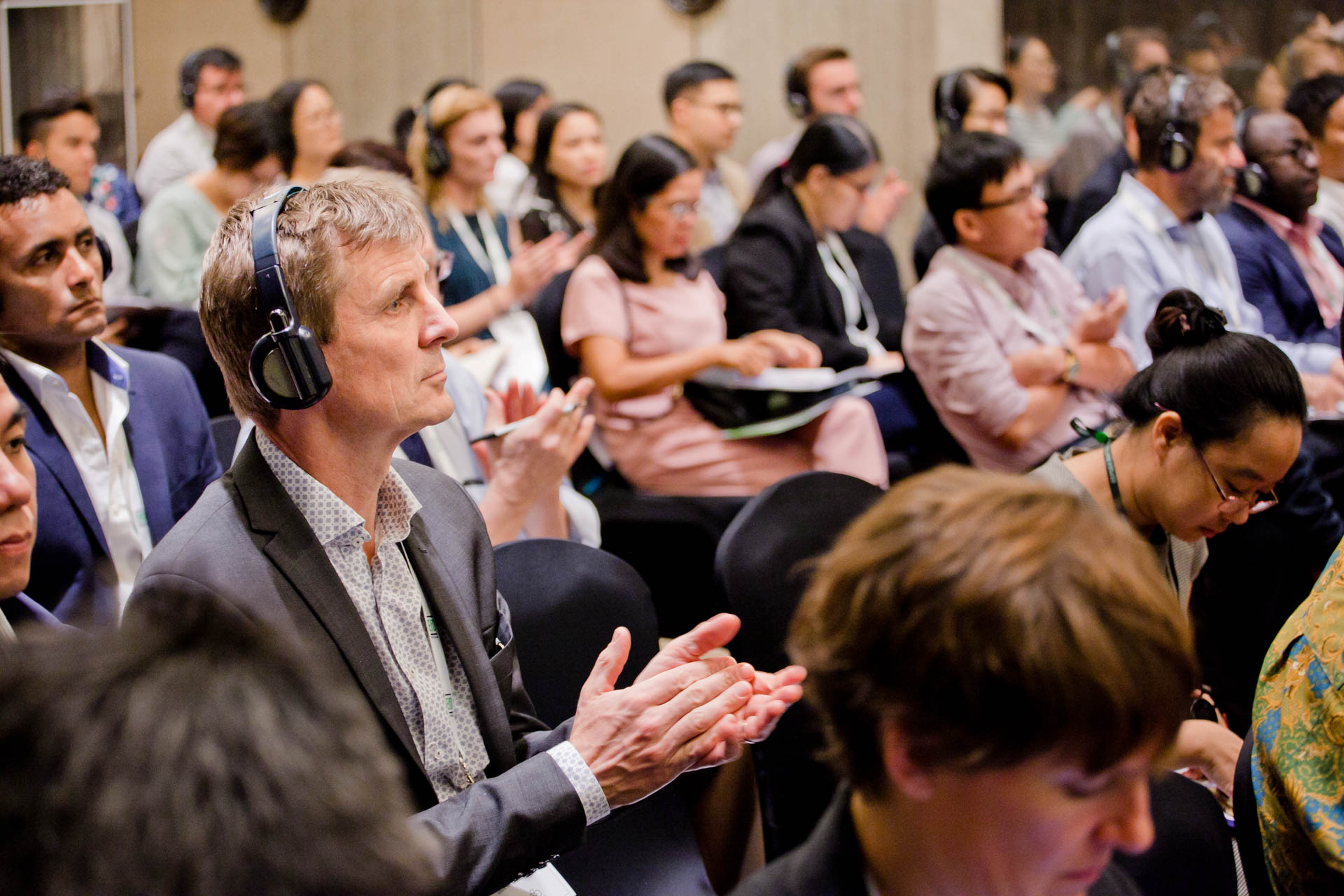
Policy Dialogue on “Economic approaches for the management of air, water, waste and marine: Lessons learnt and ways forward”
05 Nov, 2018
The Policy Day of the 12th Annual Meeting of the Environment for Development Initiative (EfD) was held in Hanoi, Vietnam on November 1st, 2018. This event is co-organized by the Environment for Development Initiative (EfD), Asian Development Bank (ADB), Institute of Strategy and Policy on Natural Resources and Environment (ISPONRE), Economy and Environment Partnership for Southeast Asia (EEPSA) and the University of Economics Ho Chi Minh City (UEH).
Attending the Policy Dialogue, on the UEH’s side, there were Prof. Nguyen Dong Phong - President, Dr. Pham Khanh Nam - Vice Dean of School of Economics, Director of EEPSEA along with lecturers of School of Economics UEH.
This year theme for this special event was Economic Approaches for the Management of Air, Water, Waste, and Marine: Lessons Learnt and Ways Forward Pollution. The morning session was dedicated to the soft launch of an ADB report on market-based approaches for environmental management in Asia. The importance of this report was highlighted and welcome by Dr. Nguyen The Chinh, Director General of Vietnam’s Ministry of Natural Resources and Environment (MONRE)’s Institute of Strategy and Policy. In his welcome speech, Dr. Chinh called for the combination of market-based instruments and approaches with the traditional command and control approach to address existing environmental problems in Vietnam. For a country which does not have private land ownership and started to adopt policies toward a free market, Vietnamese government bureaucrats and politicians have relied heavily on regulation to address a variety of issues including environmental ones. Tax and fee-based tools have been associated with the generation of revenue.
The speakers in this session including Mr. Isao Endo from the Asian Development Bank and the key research group leaders led by Professor Gunnar Köhlin of the University of Gothenburg took turn to provide an overview and important highlights of the report. The report demonstrated the commitment of ADB to promote the use of market-based instruments through knowledge sharing and pilot programs in the region. Market-based approaches have been deployed in various programs at different scales in Asia in dealing with air pollution, water management, and solid waste management. They can provide efficient alternatives/complements to command-and-control approaches by providing incentives for lowering compliance costs and creating innovations. However, the presenters also admitted that in order to scale up those market-based programs, important institutional and political factors should be taken into consideration. Unfortunately, the scope of the report does not accommodate such a task.
The afternoon session of the Policy Day was dedicated to the management of fisheries. The three speakers including Dr. Pham Viet Anh of Vietnam’s Ministry of Agriculture and Rural Development, Prof. Håkan Eggert of the University of Gothenburg, and Prof. Chris Anderson of the University of Washington. The speakers presented statistics on worldwide fisheries and the case of Vietnam, which underscores the crucial role of regulation in aquaculture to achieve sustainability in this sector. Prof. Eggert also presented an economic model to explain biological and economic tragedy of fisheries. The model justified a careful adoption of regulation in terms of catch and total number of fish stock at least among countries being studied.
Some of photos of the event
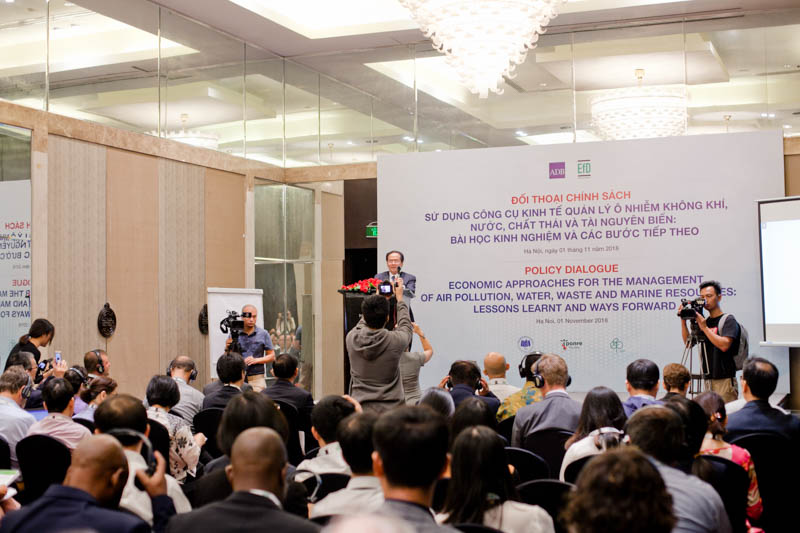
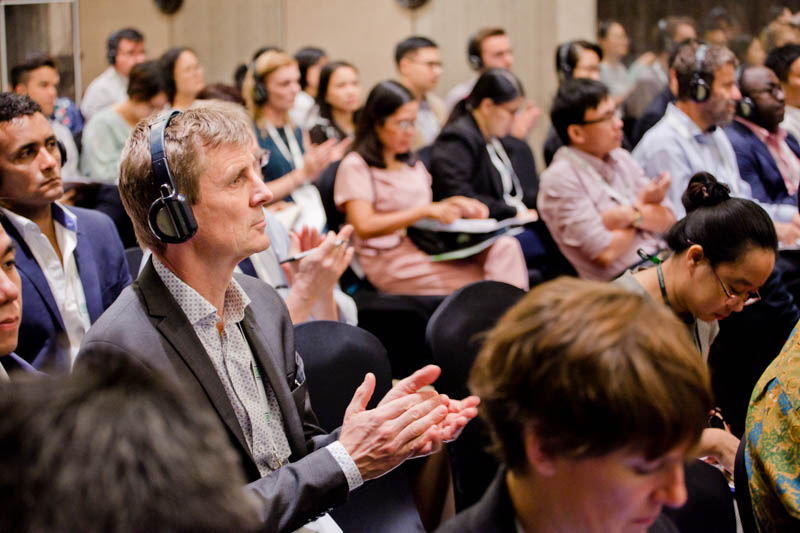
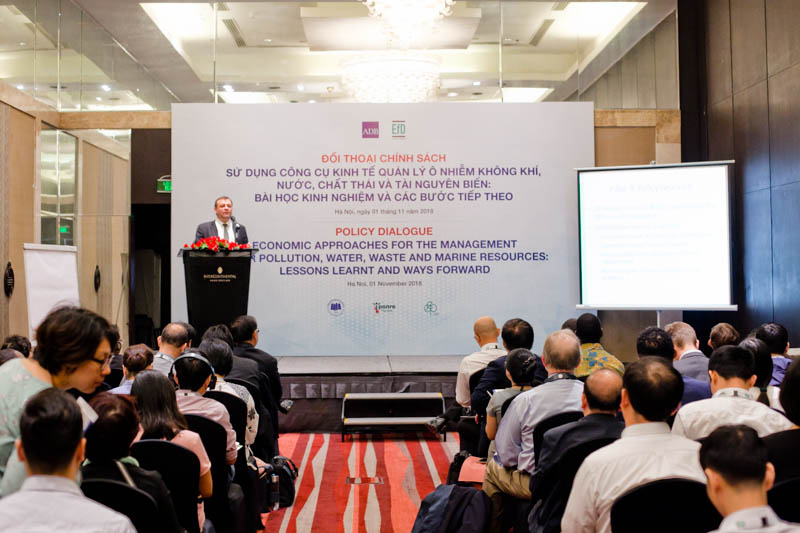
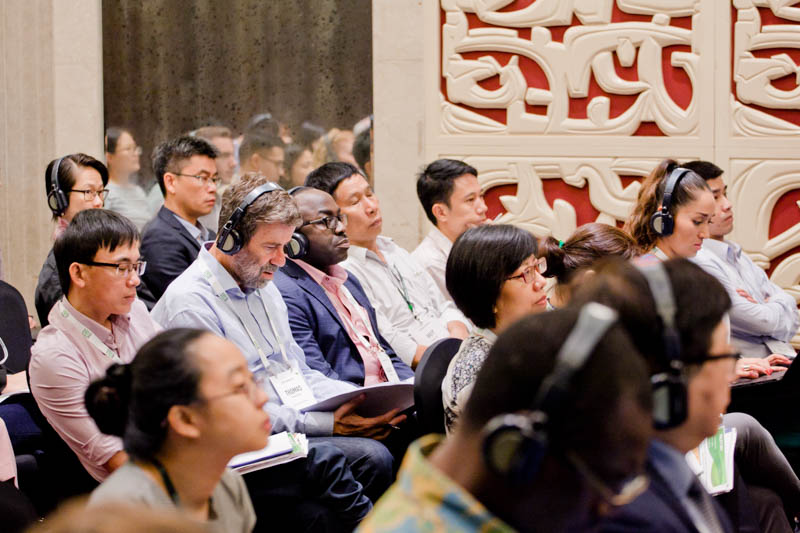
Source: UEH School of Economics








